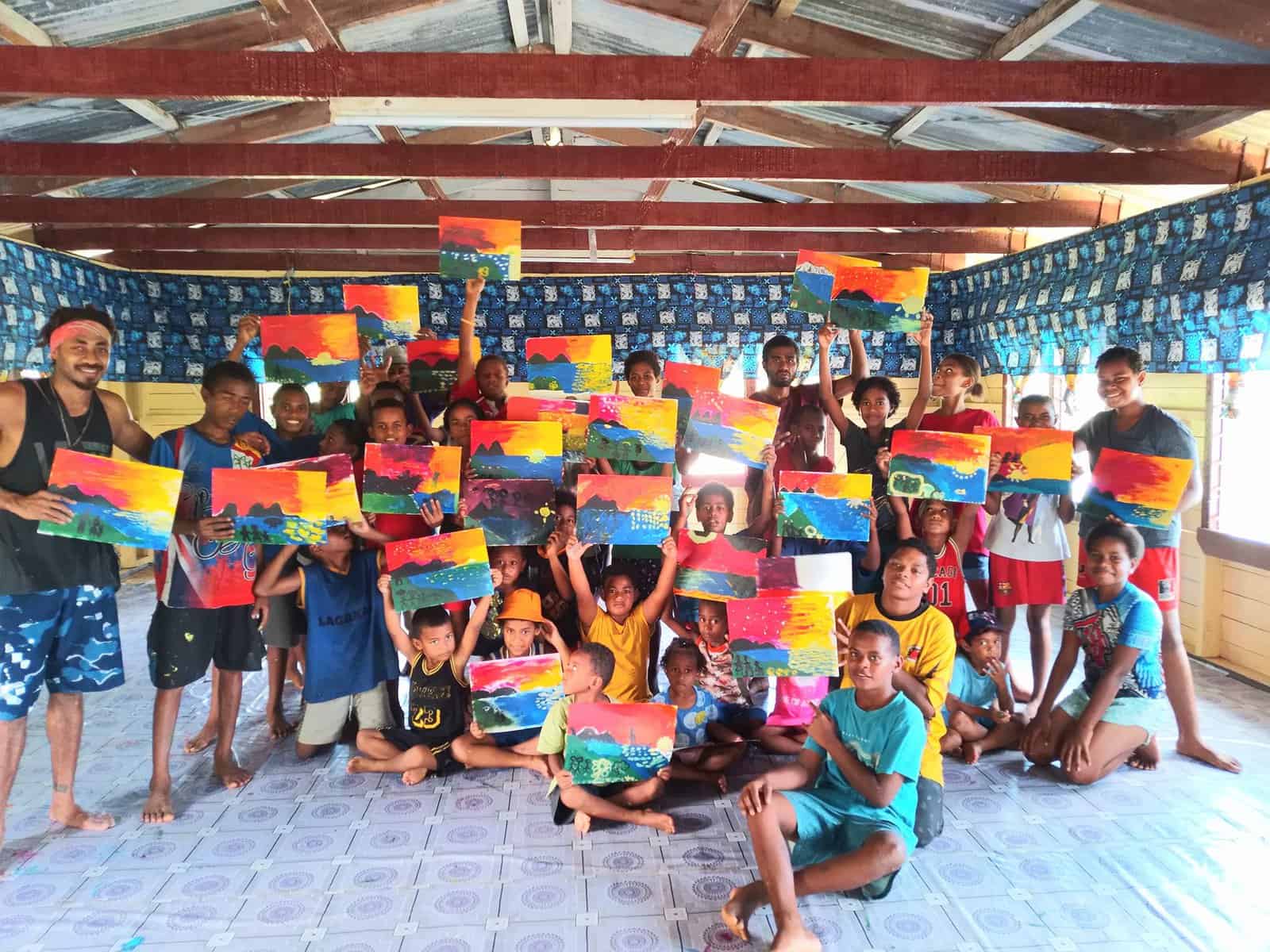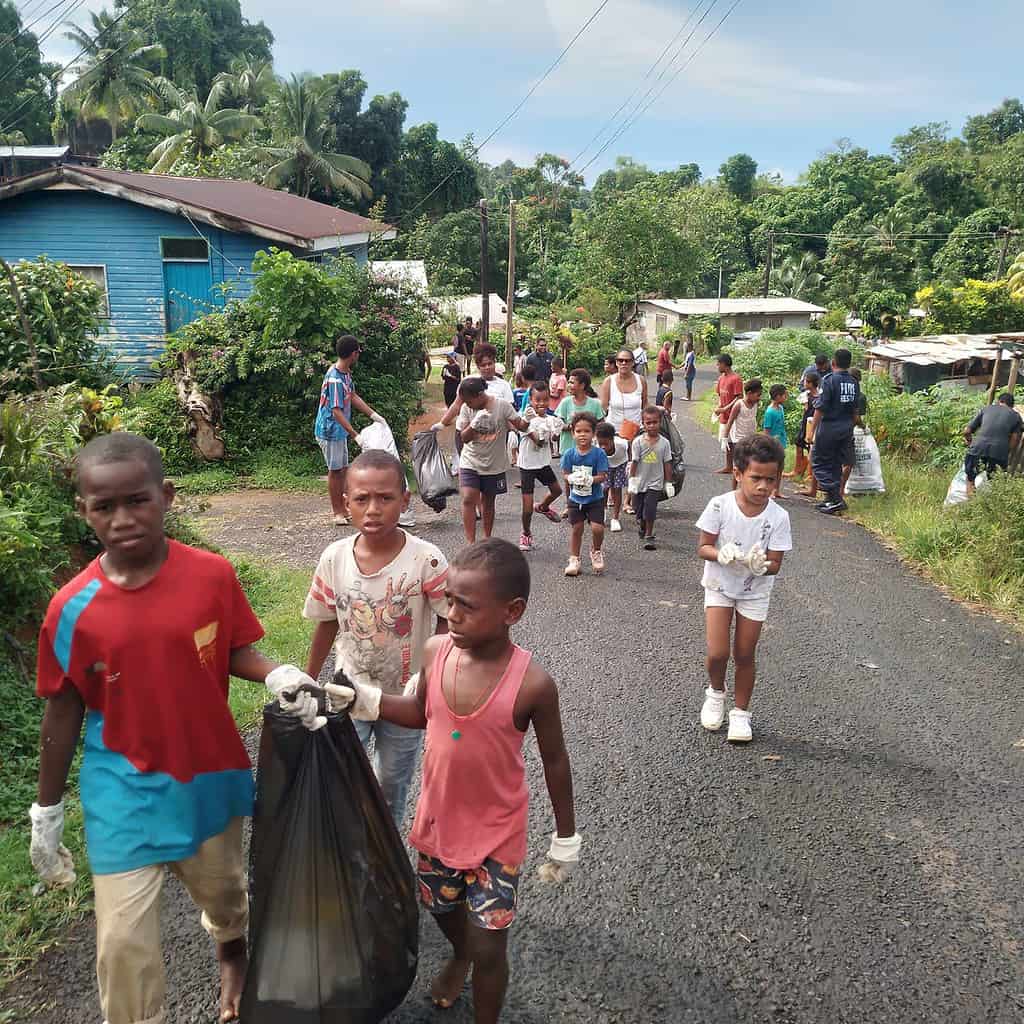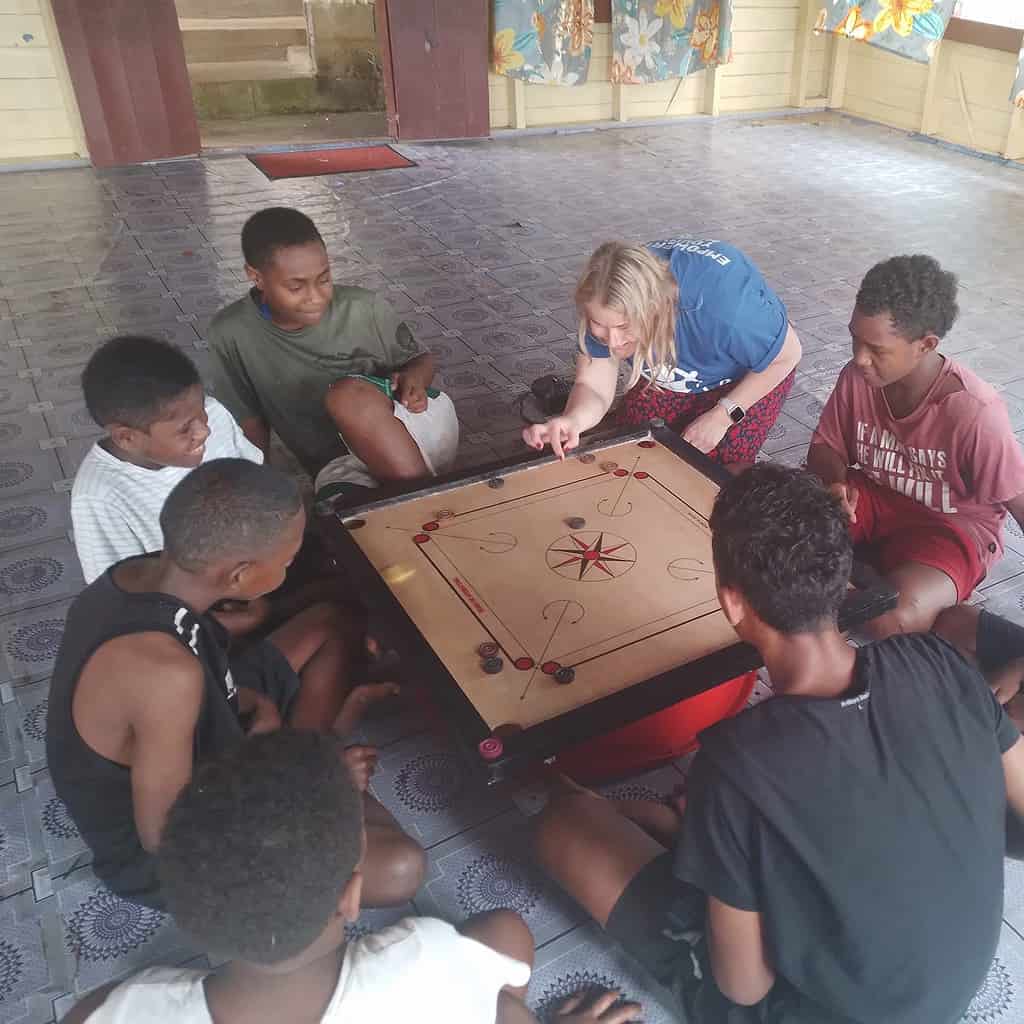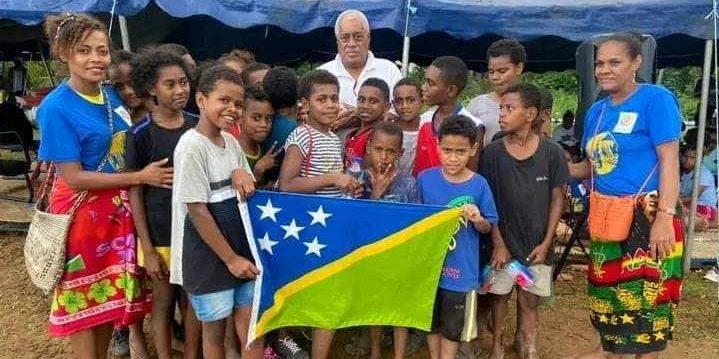Like many of Fiji’s informal communities and settlements, when many people hear the name ‘Kalekana’, they associate it with drugs, crime and poverty. Yet, a group of dedicated youths are working on changing that narrative.
“We created the Kalekana Powerpuff Kids’ Club seven months ago and we’re very proud of its progress,” says Maggie.
“These kids are still trying to understand life, what to do and what not to do, so our main focus is on them.
According to Joanna, these children are dealing with many forms of abuse, drug abuse being one of them.
“Most of the kids are sniffing glue because it’s cheap and accessible.
Joanna says there is a serious need for better parental guidance and more awareness on children’s rights.
“Some parents counsel their kids at home, saying ‘iko na gone (you’re a kid) or gone ca (you’re a rebellious kid).’
“The voices of our children and youths are never heard. They are always neglected in community meetings — they are taught to sit down and listen.
“So, these children need empowerment. When they have the full support, they won’t resort to crime,” Joanna asserts.

In response, the duo have organised events such as the Lami Fun Day at Johnny Singh park to keep the young ones off the streets.
“We helped organise the Lami Fun Day. We arranged for sponsors like FMF and Fiji Water to support us. We even painted the ground ourselves,” said Maggie. “There were six of us that stayed up all night to paint the ground from 2am-6am. We didn’t have torches so the moon was our light.
“There was so much to eat and drink that day! We just wanted the best time for our kids and youths.
Other club activities include playing vidividi (board game), painting sessions, picking up litter within the community and planting mangroves along the Lami seashore.


When asked what motivates them to look after the children, Joanna says “It’s motherly love!”
“Sometimes we sit down and look at each other, asking ourselves, “Why are we doing this?
“It’s just love!
“Maggie is a young person and I’m a mom of ten children. I have my business and my family to look after. But we both kept that aside — just to have some time to help these children,” Joana expressed.
“Eight youths from Kalekana are currently enrolled in a small engine repair course. We don’t want them to just have certificates, but to keep using those skills. We’re in talks with Fiji Fish Limited so that our youths can join them and do boat engine repairs,” Maggie said.
She adds some youths have also undergone training to be future sports’ umpires and referees.
What’s also noteworthy is that many living in Kalekana are of Solomon Islander ancestry.
In the 1800s, Solomon Islanders were brought to work in the cotton and sugar cane plantations in Fiji through the blackbirding trading system, the Fiji Museum notes.
Having a land to call their own is also a problem, Joana highlighted.
“The land doesn’t belong to the Solomon Island descendants and Kalekana is a settlement.
“I don’t know what’s happening with the Bose Levu Vakaturaga (Great Council of Chiefs) now because the Solomon descendants went to Bau Island last month to ask if the GCC can liaise with the government to freely give the land, where all the Solomon descendants are, so they can have their own land,” she said.
“We have yet to call this place our home.
The issue of land has also affected the progress of the Kalekana Rugby Club.
Since 2021, the team has been performing well in local rugby tournaments.
“They need a training ground. Most of the time, they train at Johnny Singh park. They train there every week and they aren’t the only ones that use the ground,” said Maggie.
“We would often host kava barrels to fundraise for our rugby tournament expenses. Or climb for coconuts to sell and earn for our tournament entry fees,” a club player explained.
“When we started playing rugby, I believe the crime rate dropped because the sport brought everyone together – it united us!,” he said.
“When our young kids see that their older peers are provided the help they need, they too will feel encouraged to set goals and reach them,” added Maggie.
Editor’s note: this article was updated to add a reference to cotton plantations (29/6/23)
